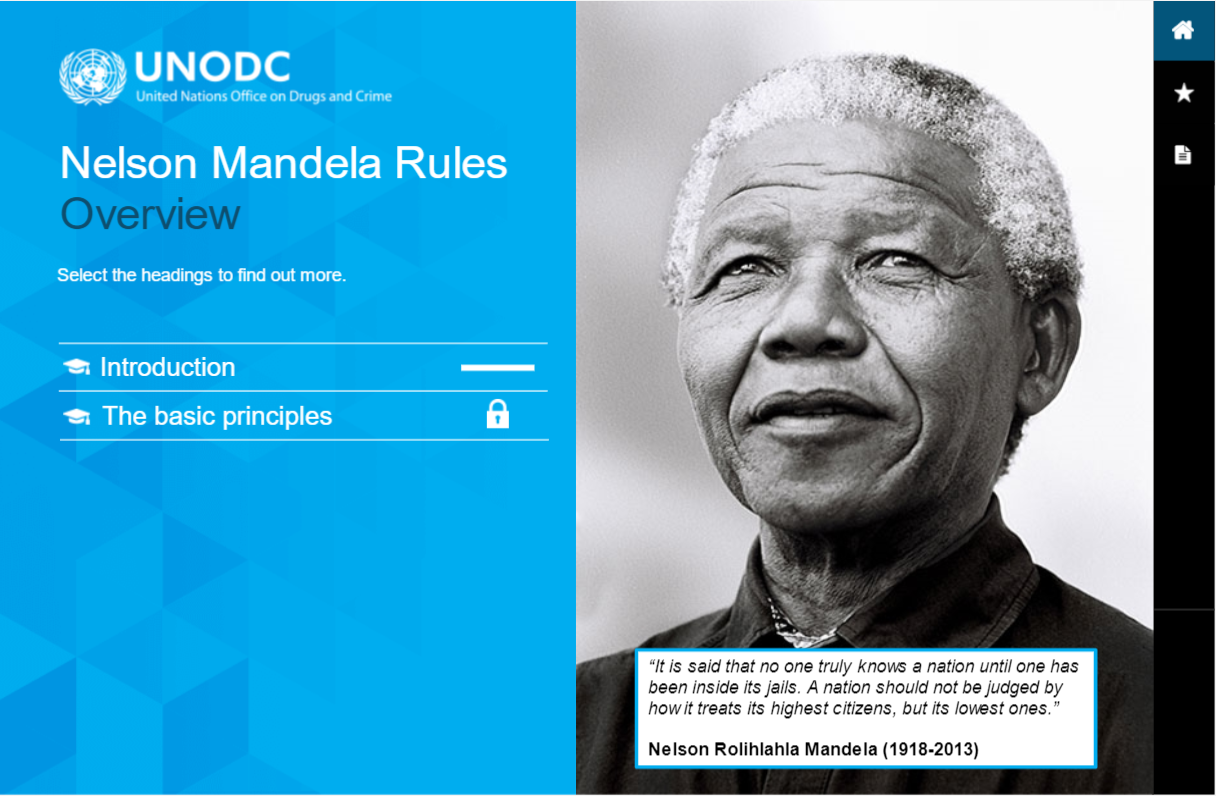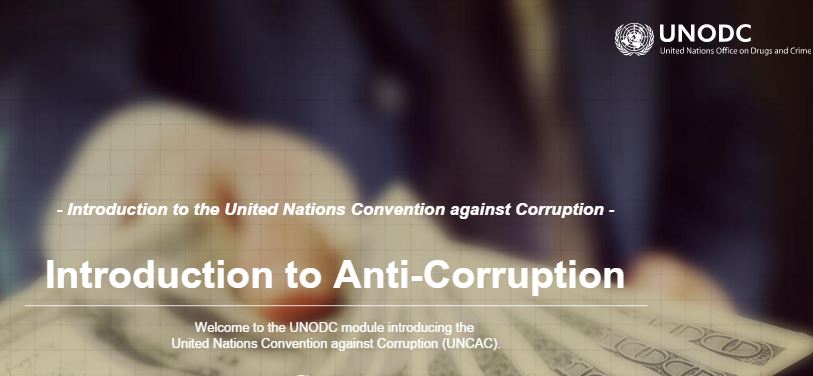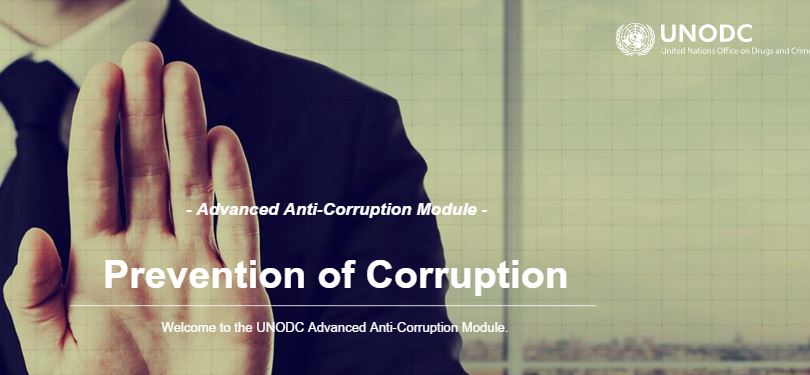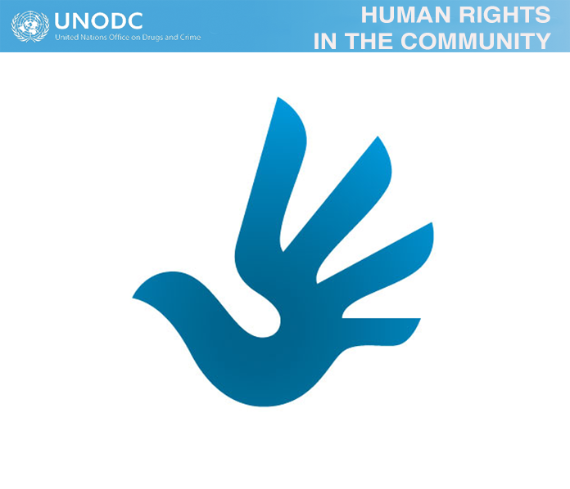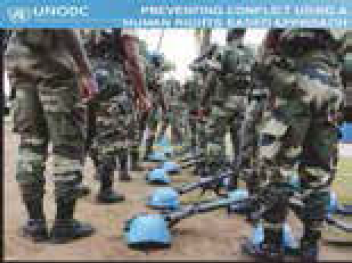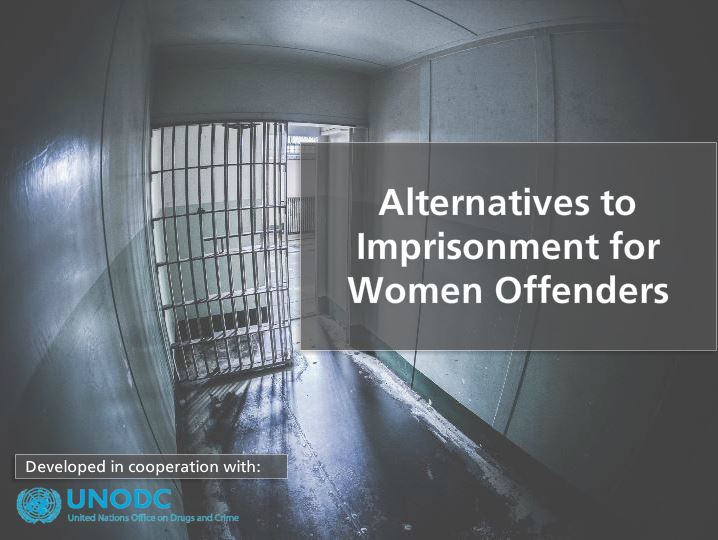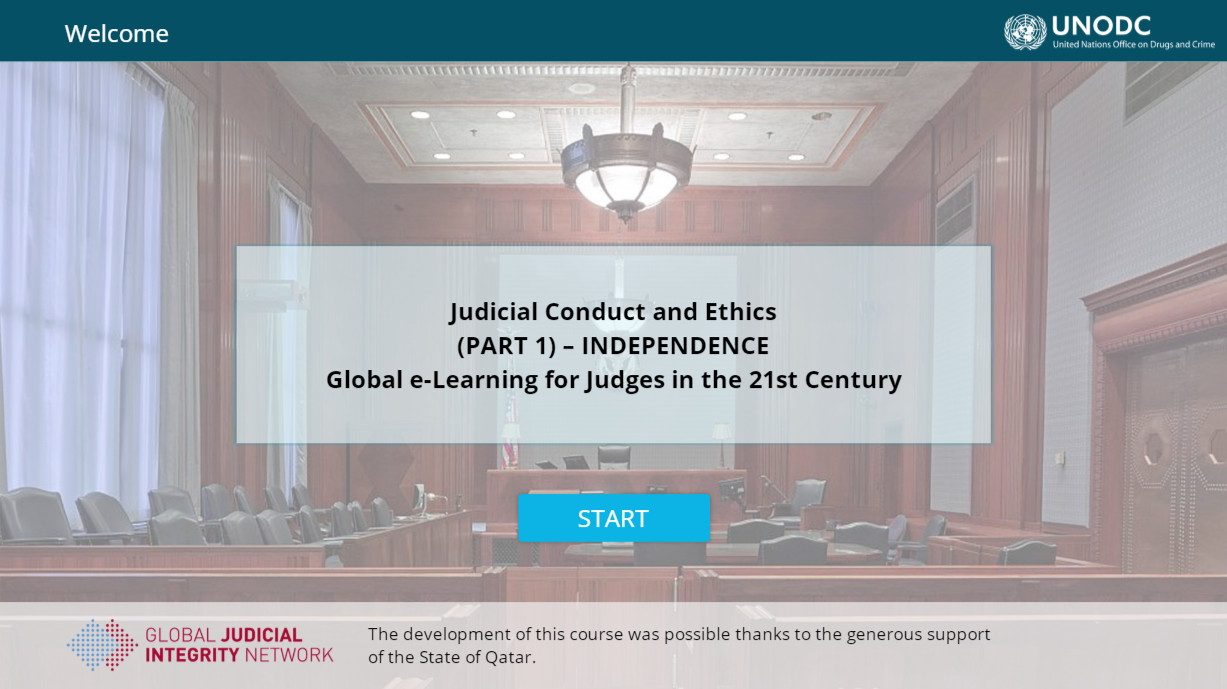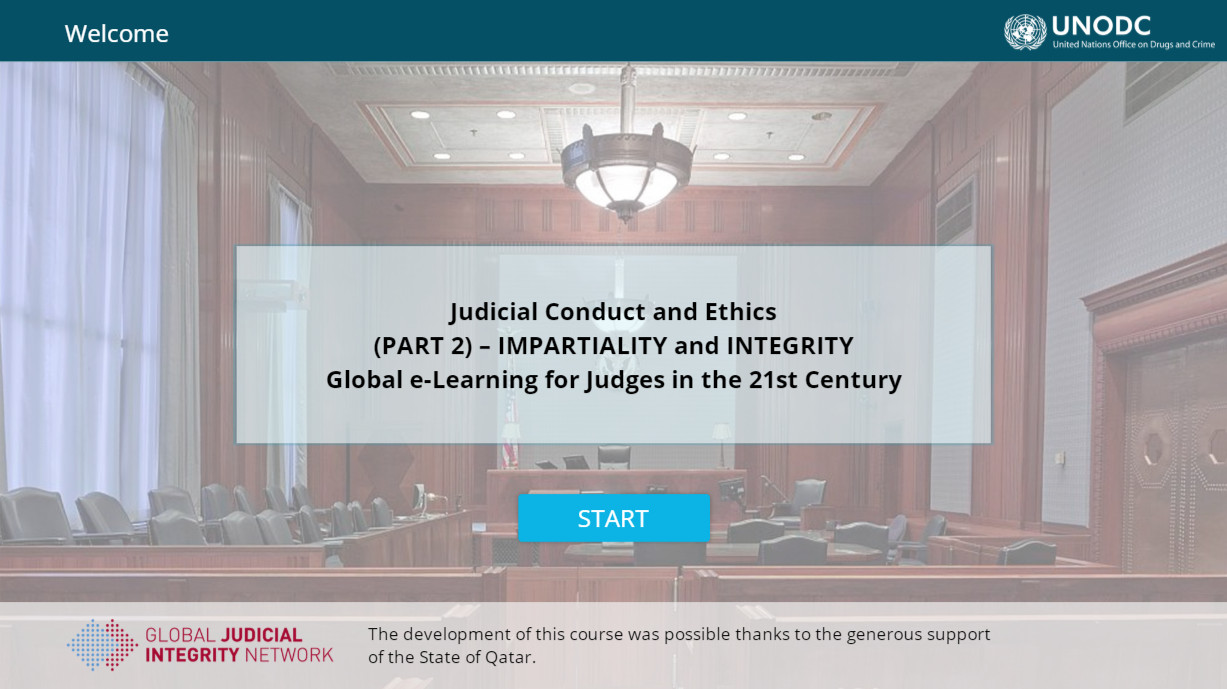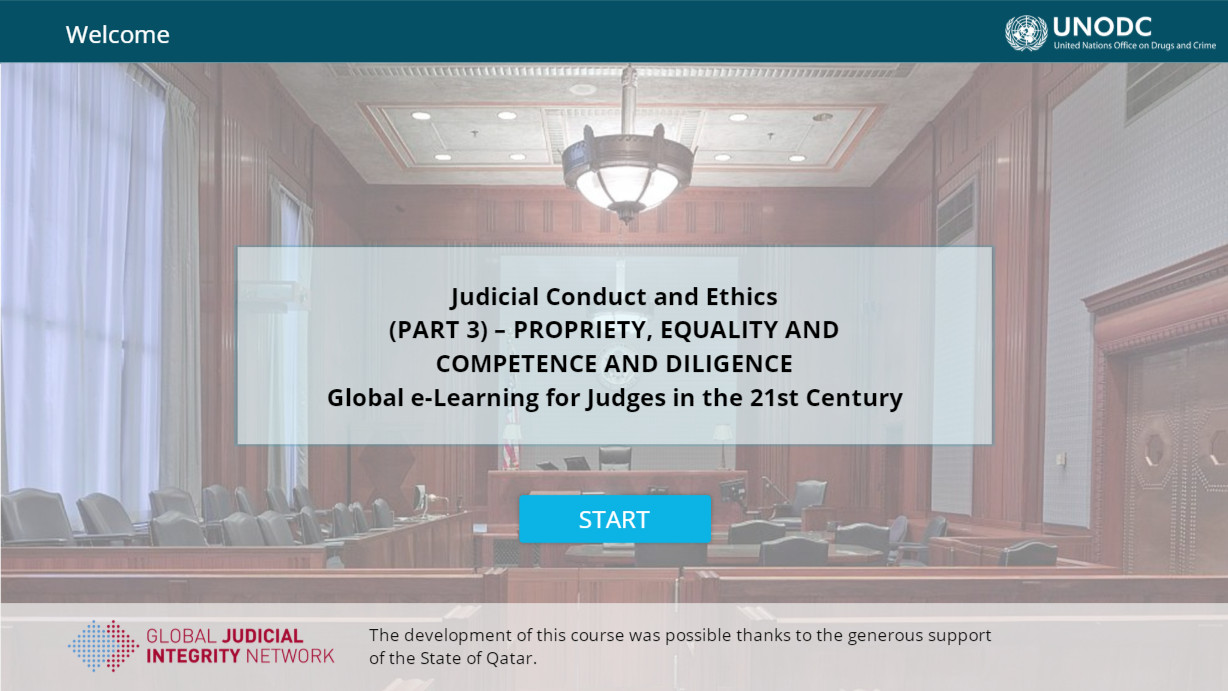Public Courses
The UNODC global eLearning platform offers a number of self-paced online modules that are open to the public and free of charge. Anyone can access these modules after self-registering on the eLearning platform. Unless otherwise stated, a certificate will be issued upon the successful completion of a post-test.
This course contains seven self-paced modules that will assist the user in understanding and applying the Nelson Mandela Rules as the universally acknowledge minimum standard for the management of prisons and the treatment of prisoners. It consists of an introduction, five substantive modules as well as a final assessment. Each substantive module consists of a theoretical and a practical part, the latter exposing the user to concrete prison management scenarios. Resource sections throughout the course provide references to more in-depth technical guidance material. The course has been primarily designed as a practical training tool for prison officers and other officials working in prisons. It will be equally relevant for prison monitoring and inspection bodies and other (non-)governmental entities promoting prison reform in the line with international standards and norms..
Available in: English, Arabic, Bangla, French, German, Indonesian, Kazakh, Malay, Portuguese, Russian, Spanish, Thai, Vietnamese
Duration: 30 min. each
This self-paced module focuses on understanding organized crime, organized criminal groups and provisions of UN convention on organized crime. It also focuses on the social and criminal justice responses to organized crime, including law enforcement tools and prosecution strategies.
Available in: English, French, Spanish
Duration: 90 min.
Introduction to Anti-Corruption
This self-paced module provides an introduction to the United Nations Convention Against Corruption, what corruption is, the consequences it can have as well as the requirements for how corruption should be addressed.
Available in: English, Arabic, French
Duration: 60 - 90 min.
Advanced Anti-Corruption: Prevention of Corruption
This self-paced module provides an understanding of the United Nations Convention Against Corruption and explores how, as the only global, comprehensive and legally binding anti-corruption instrument, it can act as a framework for the fight against corruption across the globe.
Available in: English, Arabic
Duration: 60 - 90 min.
Human Rights in the Community (Currently not available)
This self-paced module provides information on human rights through the eyes of a community member. It explores the basic principles and human rights important to a member of the community, in particular human rights that are significant during times of emergency or conflict, and how human rights are established under specific covenants or treaties. It considers what protection human rights should provide for individuals facing the criminal justice system, for victims of crime, and also how victims should expect to be treated by law enforcement officers.
Available in: English, Sinhala, Thai
Duration: 60 min.
Preventing Conflict Using a Human Rights Based Approach (Currently not available)
This self-paced module provides training on the human rights based approach and how this approach can assist to prevent, transform or resolve conflict. It looks at how law enforcement officers should act in accordance with a human rights based approach and the keys actions for applying a human rights based approach in the criminal justice sector during times of emergency or conflict.
Available in: English, Sinhala, Thai
Duration: 60 min.
Alternatives to Imprisonment for Women Offenders
This self-paced module addresses gender-based discrimination in the criminal justice system and explains non-custodial measures that should be made available to women offenders in line with international standards and norms.
This course was developed by UNODC and the Council of Europe for criminal justice practitioners.
Please note that this module does not contain a post-test, and therefore no certificate will be issued.
Available in: English
Duration: 60 - 90 min.
Judicial Conduct and Ethics: Global eLearning for Judges in the 21st Century - Independence
This self-paced module is an introduction to the origins, purpose and content of the Bangalore Principles of Judicial Conduct. It covers the first Principle of Independence and explains its relevance and application to a judge's work and life. It also describes the interaction between social media and judicial conduct.
Please note that this module does not contain a post-test and therefore no certificate is issued.
Available in: English, Arabic, French, Russian, Spanish
Duration: 80 min.
This self-paced module covers the second and third Bangalore Principles of Impartiality and Integrity. It describes the most common biases which judges should be aware of and explains how impartiality and integrity issues may come into play both within and outside of a judge's workplace.
Please note that this module does not contain a post-test and therefore no certificate is issued.
Available in: English, Arabic, French, Russian, Spanish
Duration: 80 min.
This self-paced module looks at the fourth, fifth and sixth Bangalore Principles of Propriety, Equality and Competence and Diligence. It explains how these Principles apply to a judge's work and life and describes a range of methods to help a judge deal with associated challenges. It also introduces various gender-related topics that may raise potential breaches of the Bangalore Principles. This module is the final module in this series.
Available in: English, Arabic, French, Russian, Spanish
Duration: 80 min.
